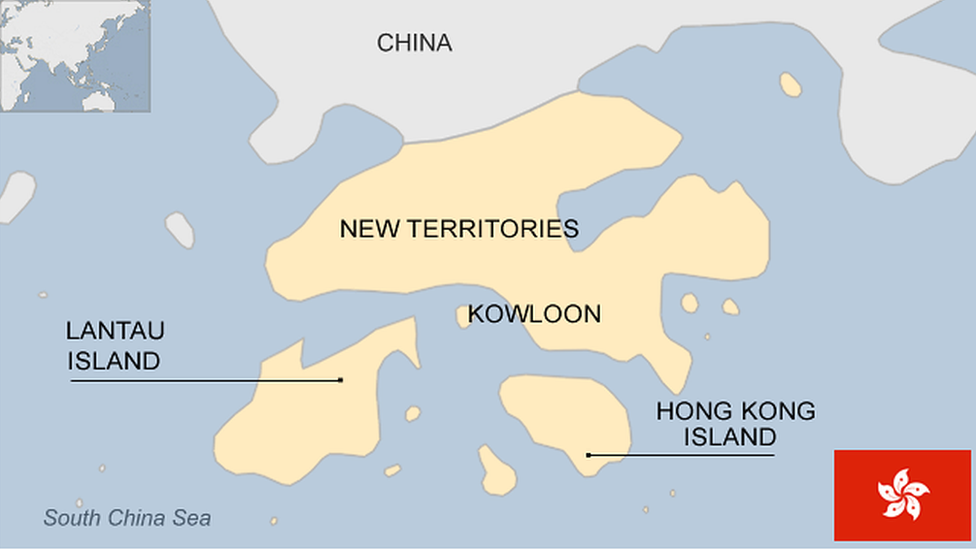Hong Kong rebel lawmakers protest China at oath-taking
- Published
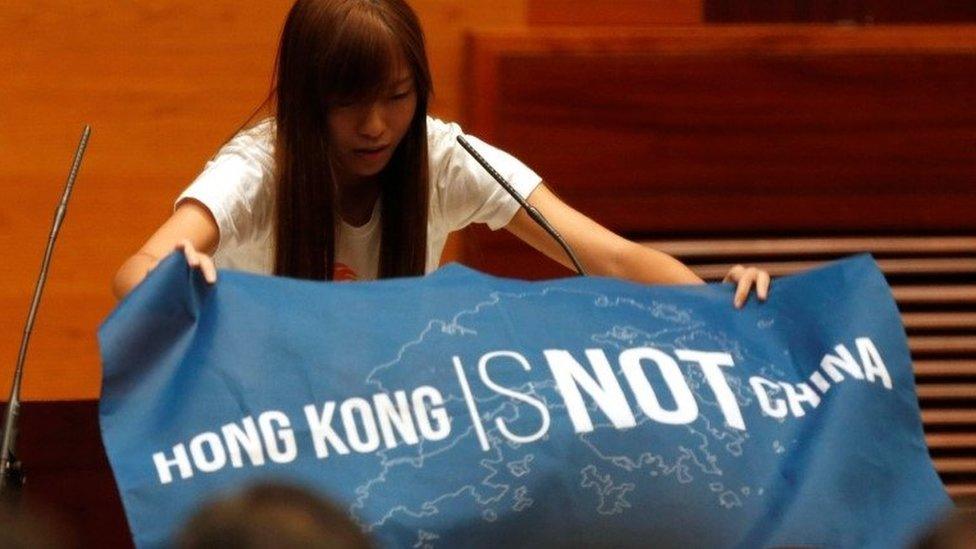
Two of the lawmakers are part of the "localist" movement that advocates for an independent Hong Kong
Hong Kong pro-democracy lawmakers have caused chaos at the city's Legislative Council by using their oaths to stage boisterous anti-China protests.
Secretary General Kenneth Chen said the oaths of Sixtus Leung, Yau Wai-ching and Edward Yiu were invalid.
Mr Leung and Ms Yau, members of the pro-independence Youngspiration party, swore while saying their oaths and mispronounced "China".
The pair also displayed a banner with the words "HK is not China".
The third protester, Mr Yiu, an independent, added lines to his oath, saying he would "fight for genuine universal suffrage".
Who are Hong Kong's new young lawmakers?
The swearing-in ceremony was the first meeting of the LegCo since elections last month, in which several candidates calling for greater autonomy for Hong Kong - or for full independence - were elected.
Many had been key figures in the pro-democracy protests of 2014.
The new lawmakers are required to recite a short oath before they can officially take their seats, which includes the words "Hong Kong is a special administrative region of China" multiple times.
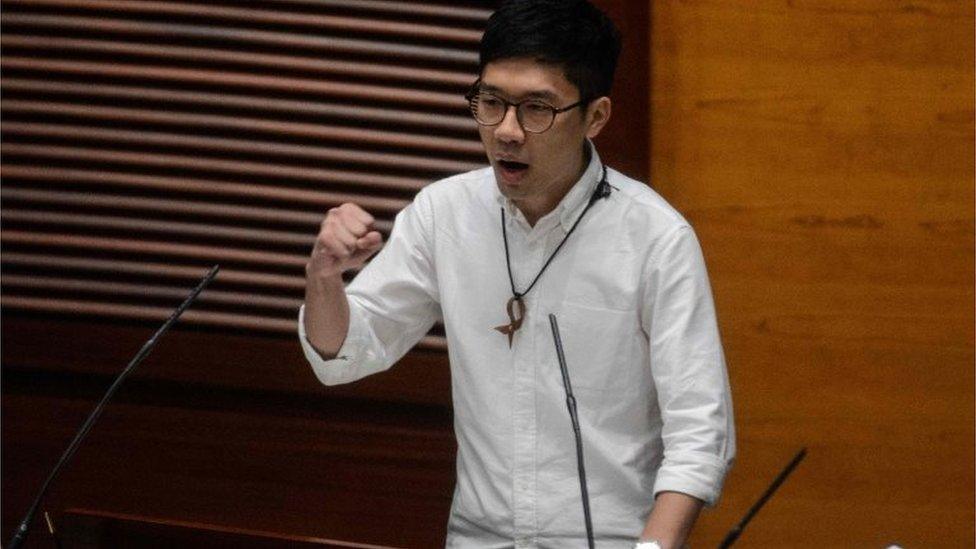
Nathan Law, an incoming lawmaker and leader of the pro-democracy movement, refused to return to his seat
But Sixtus Leung and Yau Wai-ching began their oath by swearing allegiance to a "Hong Kong nation".
They used profanities and pronounced China as "Shina", a now derogatory pronunciation used when the Japanese occupied the territory.
Mr Chen said their votes were not valid, as he had reason to "doubt whether you understand your duties as lawmakers".
Another incoming lawmaker, Nathan Law, one of the student leaders of the 2014 protests, quoted Mahatma Gandhi before taking his oath.
"You can chain me, you can torture me, you can even destroy this body - but you can never imprison my mind," he said.
He also altered the oath, changing the tone of "China" to make it sound like a question. He then refused to return to his seat, asking why the other oaths had been rejected.
Mr Chen then called for a break of the session.
Most of the other 70 new MPs were sworn in without incident, though some staged other protests. Scuffles later broke out after the three whose oaths were invalidated were locked out of a vote for the new LegCo president.
It is unclear whether the lawmakers whose oaths were invalidated will be allowed to take their seats.
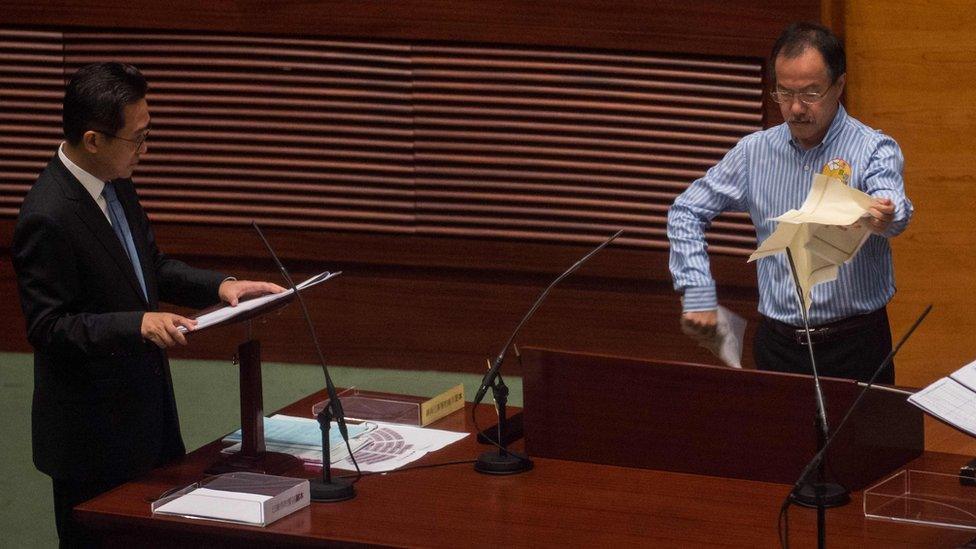
Fernando Cheung tore up a "831 ruling", a reference to Beijing's white paper which determined the framework in which the city's chief executive was to be elected
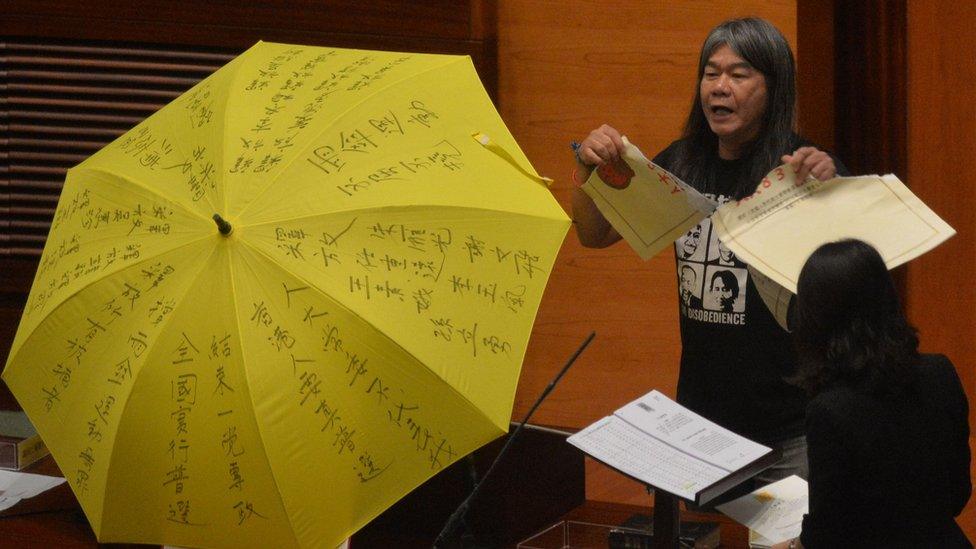
Leung Kwow-hung, also known as "Long Hair", brought to the stage a yellow umbrella that symbolised the pro-democracy Umbrella Movement of 2014. He also ripped up a "831 ruling"
Raymond Chan of the People Power Party said before taking the oath that the government was "not allowed to interfere in LegCo affairs". He also called for Chief Executive CY Leung to step down.
Helena Wong Pik-wan of the Democratic Party referenced the "831 ruling", which lays out how the chief executive is appointed, calling for it to be retracted.
Independent Lau Siu-lai read her oath in slow motion, taking almost 10 minutes.
Eddie Chu of the Land Justice League declared that Andrew Leung, a LegCo presidential candidate, should not be elected.
Social welfare functional lawmaker Shiu Ka-chun added that the "Umbrella movement might have ended but it did not collapse. We are back."
Ann Chiang Lai-wan of the DAB party was the only lawmaker who took the oath in Mandarin, rather than Cantonese.
Rising localist movement
Hong Kong, a former British colony, became a special administrative region of China in 1997. It is governed under the principle of "one country, two systems" enjoying a high degree of autonomy.
But its leader is still chosen by a Beijing-backed committee.
In 2014, demonstrators occupied major parts of the city for months demanding universal suffrage - but ultimately won no concessions.
Since then, a small number of people have been advocating for independence for Hong Kong. Referred to as localists they reject what they perceive to be the growing influence of Beijing on Hong Kong.
Chinese foreign ministry spokesman Geng Shuang declined to comment on the LegCo protests. He said it was "very clear and unquestionable" that Hong Kong was a specially administered region of China and this "will not change".
- Published5 September 2016
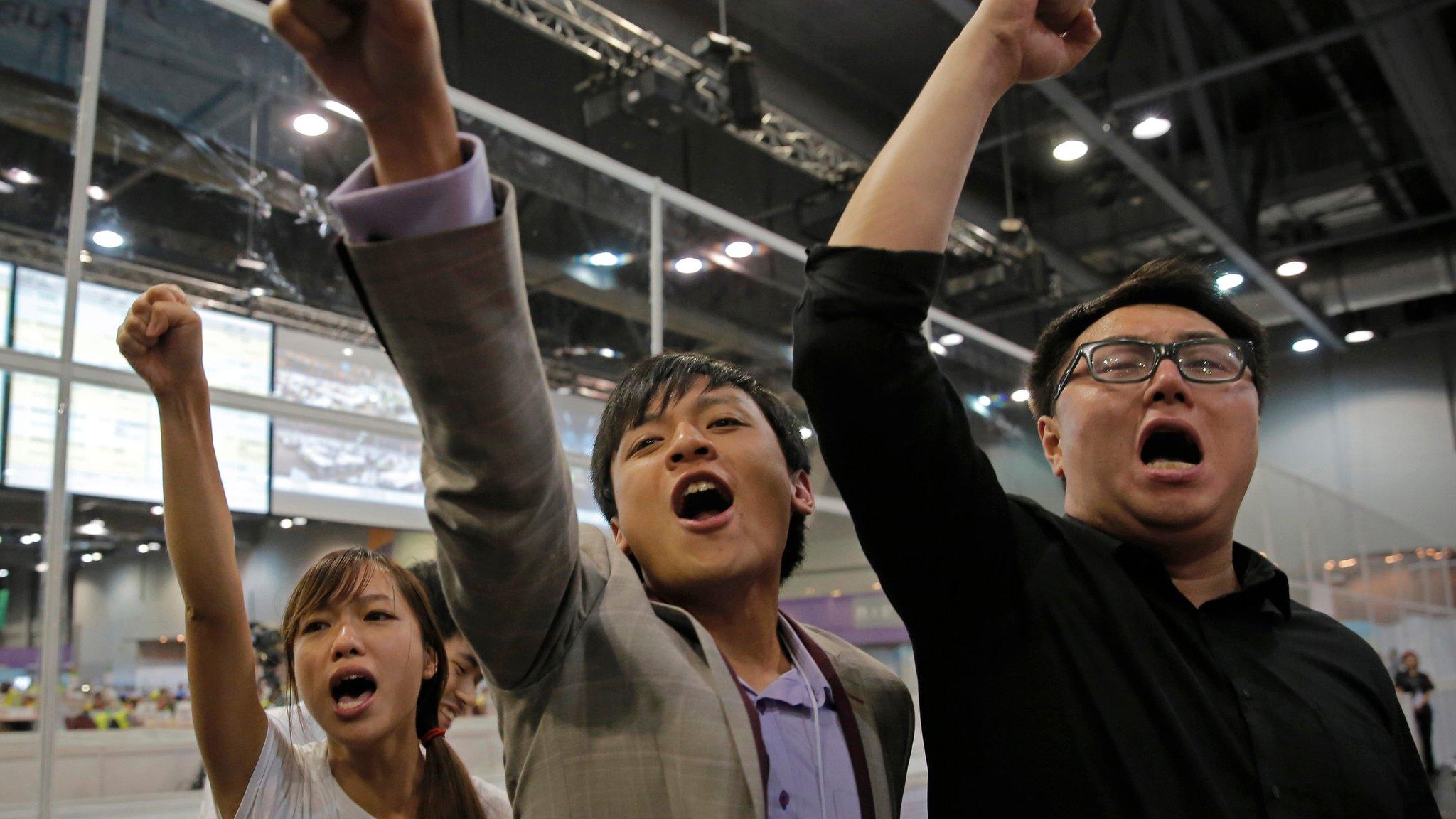
- Published18 June 2015
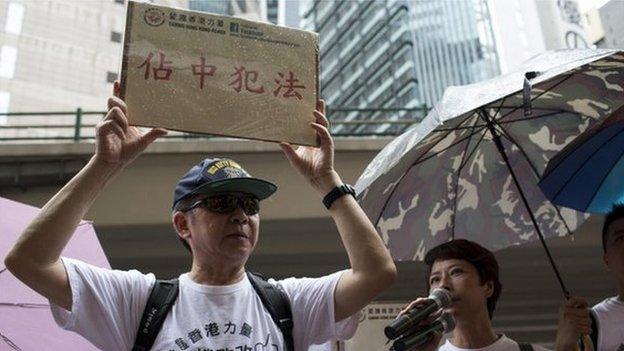
- Published7 January
